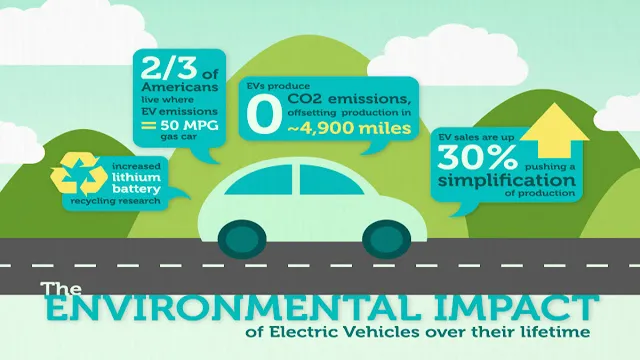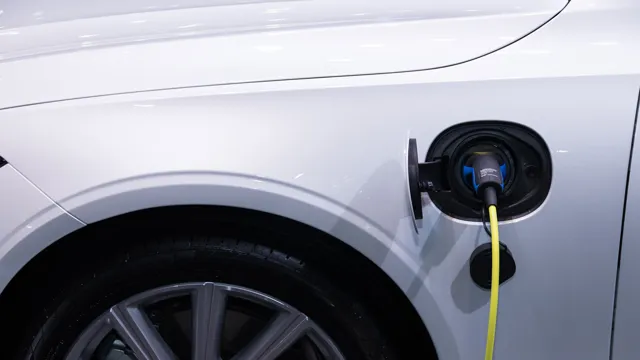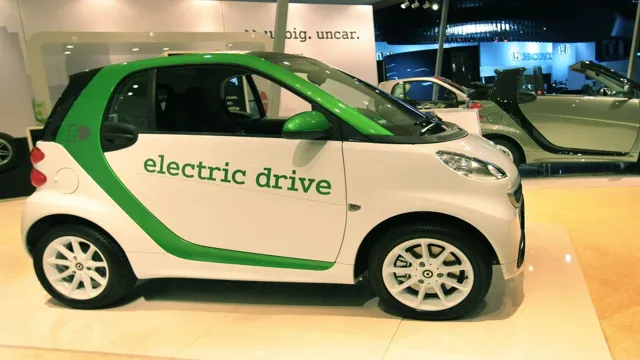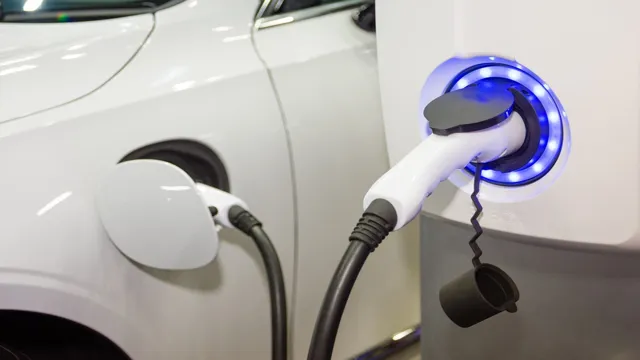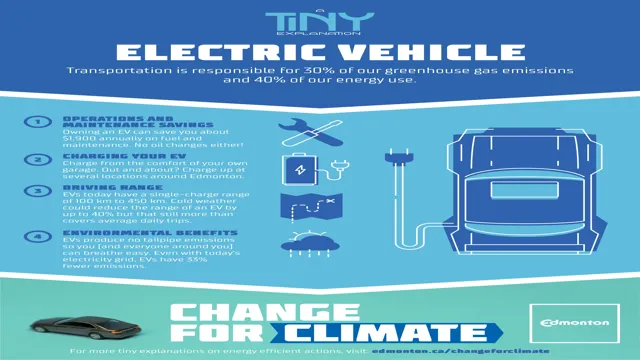Going Green with Electric Cars: The Environmental Advantages You Need to Know
Electric cars have become increasingly popular in recent years as people become more concerned about the environment. They offer a greener alternative to traditional gasoline-powered cars, reducing carbon emissions and the use of fossil fuels. But just how much impact do these electric cars really have on the environment? Are they truly the better choice for our planet? In this blog, we’ll explore the benefits of electric cars for the environment and why they may be the right choice for you.
We’ll also take a look at some of the drawbacks and challenges that come with owning an electric car, as well as what the future may hold for this technology. So buckle up, and let’s ride into the world of electric cars and their impact on the environment.
Reduced emissions and pollution
One of the main benefits of electric cars for the environment is the significant reduction in both emissions and pollution. Unlike traditional vehicles that run on gasoline or diesel, electric cars mainly rely on electricity, which is much cleaner and produces fewer emissions. As a result, electric vehicles emit less carbon dioxide and other harmful pollutants, thereby contributing to improved air quality and reduced pollution levels.
Additionally, electric cars are typically quieter than traditional vehicles, which can translate to fewer noise pollution emissions. This advantage is noteworthy, especially in urban areas where noise pollution is a major environmental concern. Thus, electric cars have the potential to significantly reduce the negative impact of transportation on the environment and improve our overall quality of life.
Electric cars produce zero emissions
Electric cars have become increasingly popular in recent years, and a significant reason for that is their ability to produce zero emissions. Unlike traditional gasoline-powered vehicles, electric cars release no harmful pollutants or greenhouse gases into the environment. This is a crucial development, especially in a world where air pollution is a severe problem, and carbon emissions are causing climate change.
When people choose to drive electric cars, they are making a positive impact on reducing emissions and pollution. Not only that, but electric cars are also quieter and more efficient, making them a more pleasant and practical option for driving. It’s clear that this new technology is paving the way for a better, cleaner, and more sustainable future.
So, if you’re looking for a way to reduce your environmental impact and make a positive change, it might be time to consider an electric car.
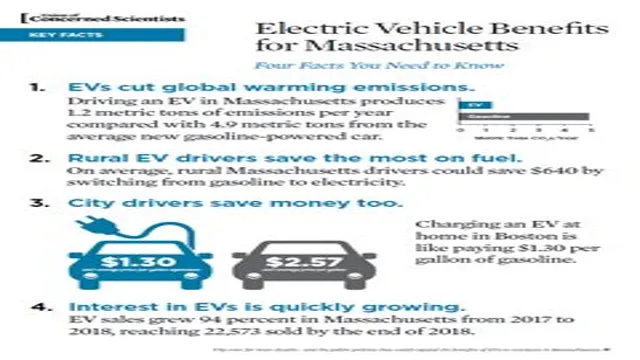
Reduce pollution from exhaust fumes
Reducing pollution from exhaust fumes is essential to creating a cleaner, healthier environment for all. With the increased use of automobiles and other transportation methods, it’s vital to prioritize reducing emissions and pollution. One way to achieve this is through the implementation of green technologies and alternative fuels, such as electric and hydrogen-powered vehicles.
By reducing the amount of harmful pollutants released into the air, we can improve air quality and reduce the negative impact on our health and well-being. It’s important to remember that small changes can also make a significant difference, such as properly maintaining vehicles and carpooling whenever possible. Let’s all do our part to reduce pollution and create a better world for ourselves and future generations.
Energy efficiency and conservation
Electric cars have several benefits for the environment, making them a popular choice for eco-conscious individuals. Firstly, electric vehicles (EVs) produce zero tailpipe emissions, meaning they don’t release harmful pollutants into the air. This helps to reduce air pollution, which is a major cause of several health problems, including respiratory issues, heart disease, and lung cancer.
Secondly, EVs are highly energy efficient, with studies showing that they can be up to three times more efficient than gasoline-powered vehicles. This means that they require less energy to travel the same distance, reducing the demand for fossil fuels and greenhouse gas emissions. Additionally, the use of EVs can help to improve energy conservation by reducing our reliance on non-renewable energy sources.
Overall, investing in an electric car can be a great way to reduce your carbon footprint and contribute to a cleaner, more sustainable future.
Cars are more energy-efficient
Energy efficiency and conservation are essential topics when it comes to reducing our carbon footprint and preserving the environment. One significant way in which we have made strides in energy efficiency is through the development of more fuel-efficient cars. In the past, we relied heavily on traditional gas-guzzling vehicles that were not only harmful to the environment but also a massive drain on our wallets.
Today’s cars, however, are much more energy-efficient and have come a long way from their gas-guzzling predecessors. With their innovative design and advanced technology, new cars have been engineered to consume far less energy, reducing fuel consumption and saving us money. Not only are they more energy-efficient, but they also produce far fewer emissions, ultimately leading to a healthier planet.
As we continue to advance and innovate in the automotive industry, we can look forward to even greater energy efficiency in the years to come.
Less dependence on fossil fuels
Energy efficiency and conservation are key elements in reducing our dependence on fossil fuels. By making small changes in our daily habits, we can make a significant impact on our energy usage. Simple actions such as turning off lights when leaving a room, unplugging electronics when not in use, and using natural daylight when possible can all contribute to a more energy-efficient lifestyle.
Similarly, upgrading to energy-efficient appliances, using low-flow showerheads and toilets, and insulating our homes can also help reduce our overall energy consumption. By conserving energy, we are not only reducing our carbon footprint, but we are also saving money on utility bills. It’s a win-win situation.
So, why not start making small changes and contribute to a more sustainable future?
Environmental impact of battery production
When it comes to the benefits of electric cars for the environment, many people focus on the fact that they emit fewer greenhouse gases on the road. But what about the environmental impact of producing the batteries that power these vehicles? While it’s true that battery production is energy-intensive and can result in significant emissions, the benefits of using electric cars far outweigh these concerns. For starters, electric cars emit significantly less carbon dioxide (CO2) over their lifecycle than petrol or diesel cars.
This means that even if one were to take into consideration the emissions from battery production, electric cars still come out ahead in terms of their overall impact on the environment. Additionally, advances in battery technology and manufacturing practices are helping to reduce the environmental impact of producing electric car batteries. From using recycled materials to implementing renewable energy sources in production facilities, there are steps being taken to make electric vehicles even more environmentally friendly in the future.
Battery production is improving
As the demand for electric vehicles increases, so does the need for batteries. But, the production of batteries comes with its own environmental consequences. Despite this, there have been some positive advancements in battery production that have lessened this impact.
For example, some manufacturers are utilizing recycled materials in their battery production, reducing the need for new resources and cutting back on waste. Additionally, companies are beginning to implement more efficient production methods, such as using renewable energy sources and optimizing supply chains. While there is still room for improvement, these initiatives show promising steps towards a more sustainable future for battery production.
Lifecycle impact is positive overall
When it comes to the environmental impact of battery production, it’s important to look at the entire lifecycle of the battery. While the production process does have some negative environmental impacts due to the extraction of raw materials and energy consumption, the overall impact is positive. This is because batteries enable the use of renewable energy sources like solar and wind power, which have much lower environmental impacts than traditional fossil fuels.
Plus, once a battery reaches the end of its life, it can often be recycled for use in new batteries, further reducing waste and environmental impact. So while there are certainly challenges to address in the battery production process, the benefits of these energy storage technologies are clear. So, if we focus on sustainable battery production, we can ensure that we’re creating a cleaner, greener future for ourselves and our planet.
Support for renewable energy sources
Electric cars are a great way to reduce our carbon footprint and support renewable energy sources. One of the most significant benefits of electric cars for the environment is that they emit zero to low emissions, making them a much cleaner option than traditional gasoline vehicles. By utilizing renewable energy sources such as solar or wind power to charge electric cars, we can further reduce our dependence on non-renewable sources of energy.
Not only do electric cars benefit the environment, but they also save on fuel costs, require less maintenance, and provide a quieter and smoother driving experience. By investing in electric cars and supporting the development of renewable energy sources, we can make a positive impact on both our wallets and the planet.
Conclusion
In conclusion, the benefits of electric cars for the environment are electrifying! Not only do they reduce emissions and improve air quality, but they also promote renewable energy sources and decrease our reliance on fossil fuels. By making the switch to electric vehicles, we can drive towards a cleaner and greener future, without sacrificing comfort or style. So let’s rev up our engines and charge ahead to a sustainable tomorrow!”
FAQs
How do electric cars benefit the environment?
Electric cars are environmentally friendly as they emit no greenhouse gases, which contribute to climate change. This means they reduce air pollution and can improve air quality in cities.
Are electric cars more energy-efficient than traditional petrol cars?
Yes, electric cars are more energy-efficient than traditional petrol cars as they use electricity to power their engines, which is more efficient than burning petrol. This means they can travel further on a single charge or battery.
What types of renewable energy can be used to power electric cars?
Renewable energy sources such as wind, solar and hydropower can be used to generate electricity to power electric cars. This means that electric cars can be powered from clean energy sources that don’t produce emissions.
Are electric cars more expensive than traditional petrol cars?
Electric cars can have a higher upfront cost than traditional petrol cars, but this is often offset by lower running costs and maintenance costs. This means that electric cars can be a cost-effective option in the long run.
